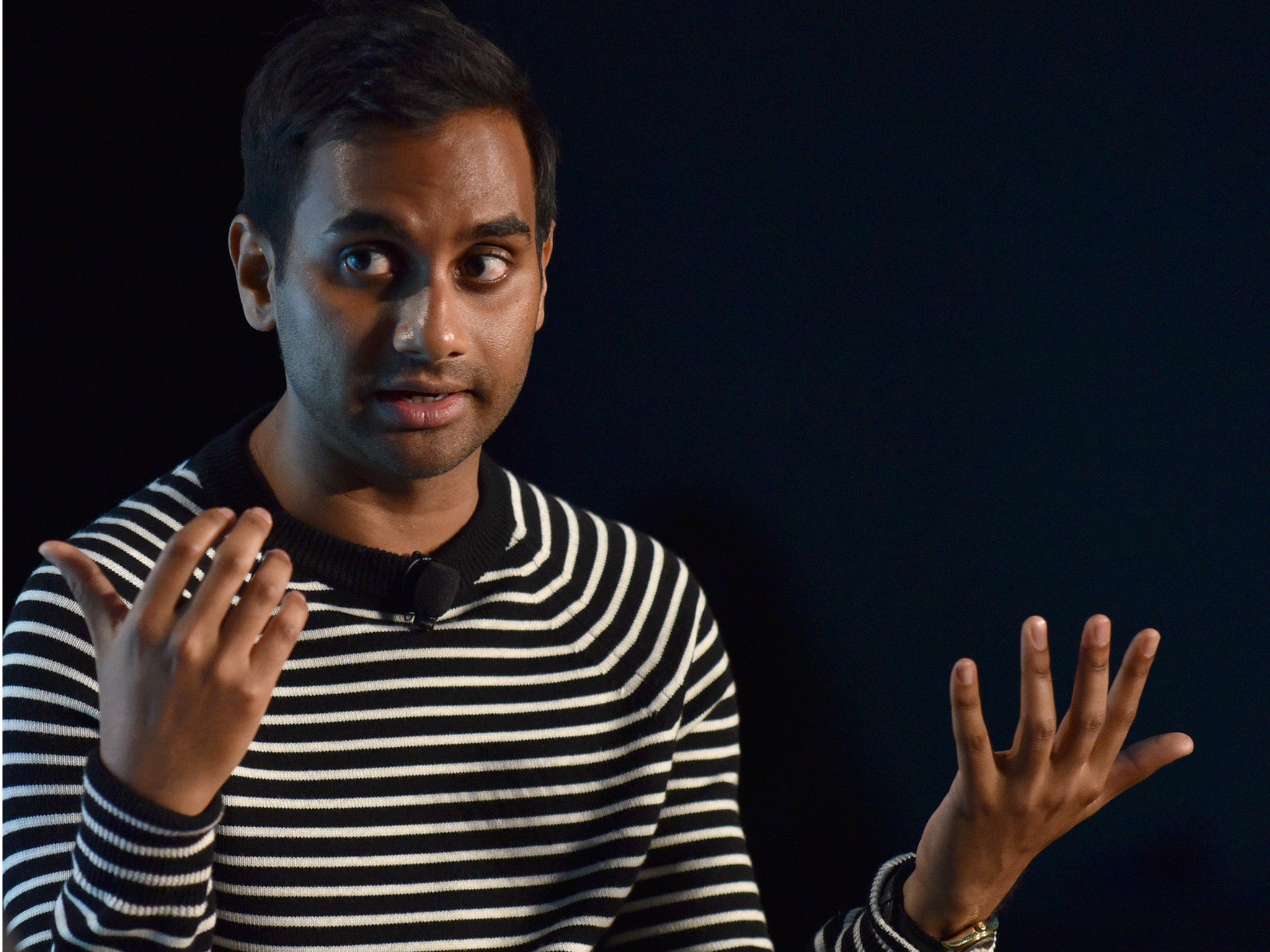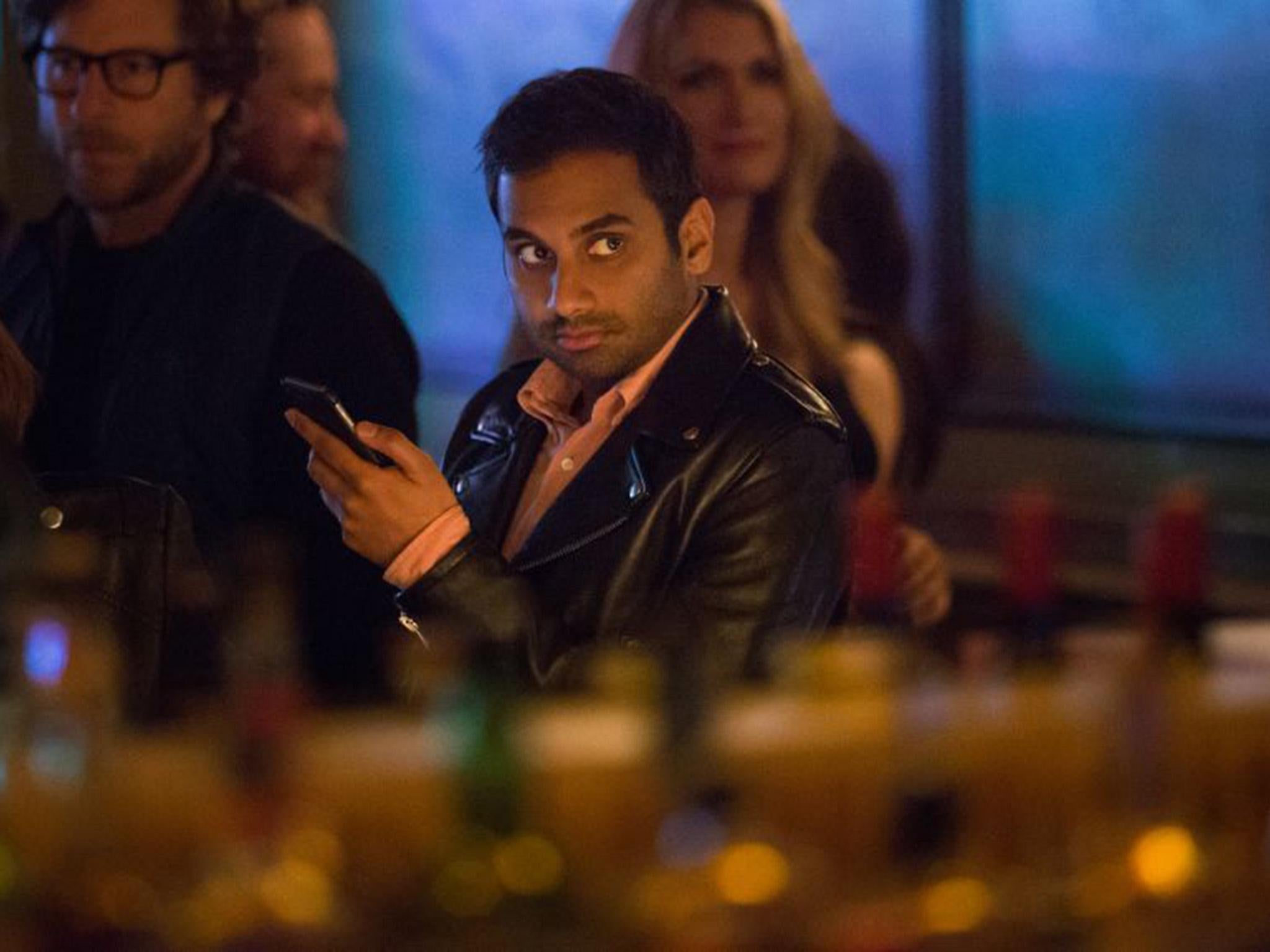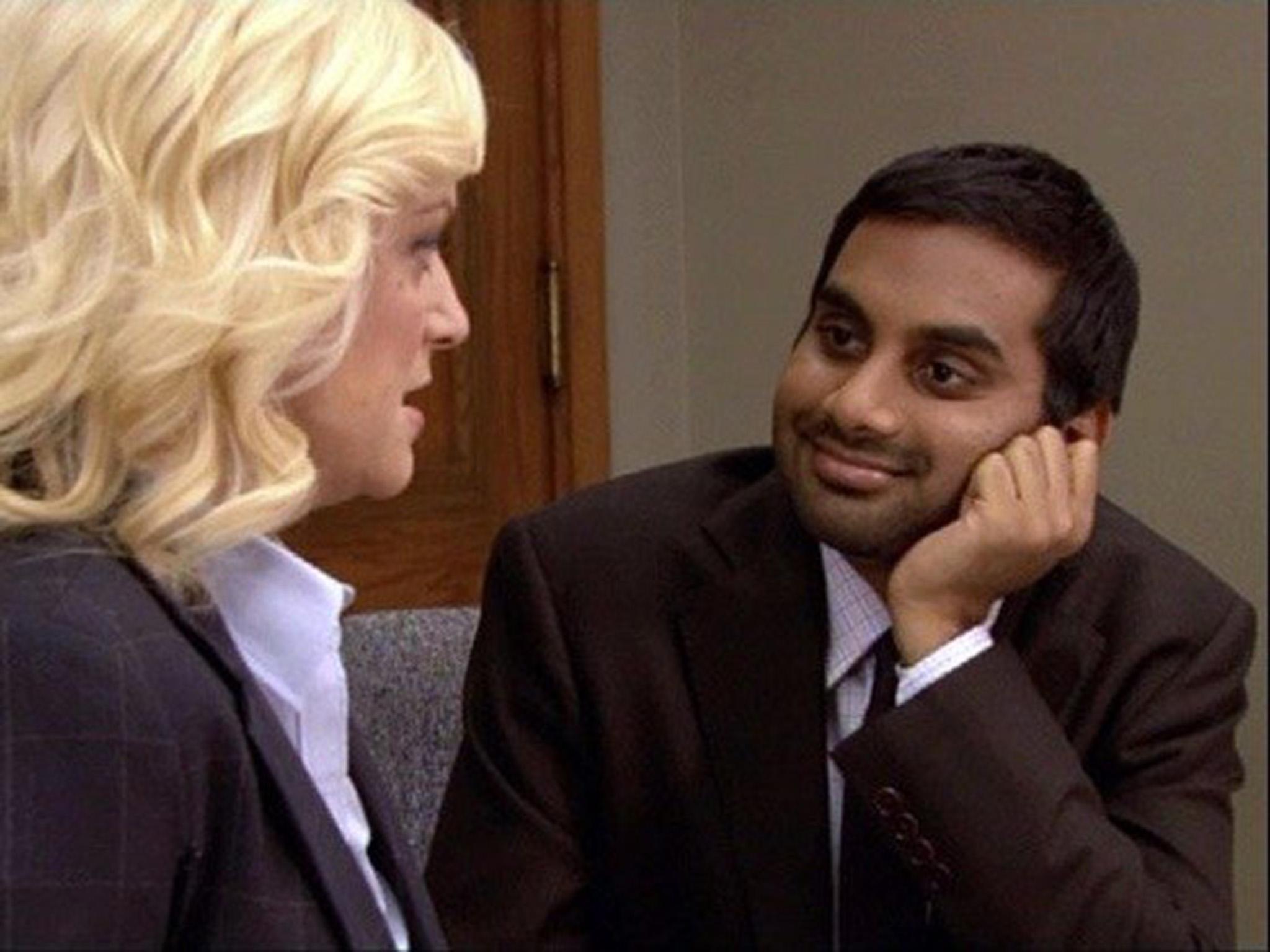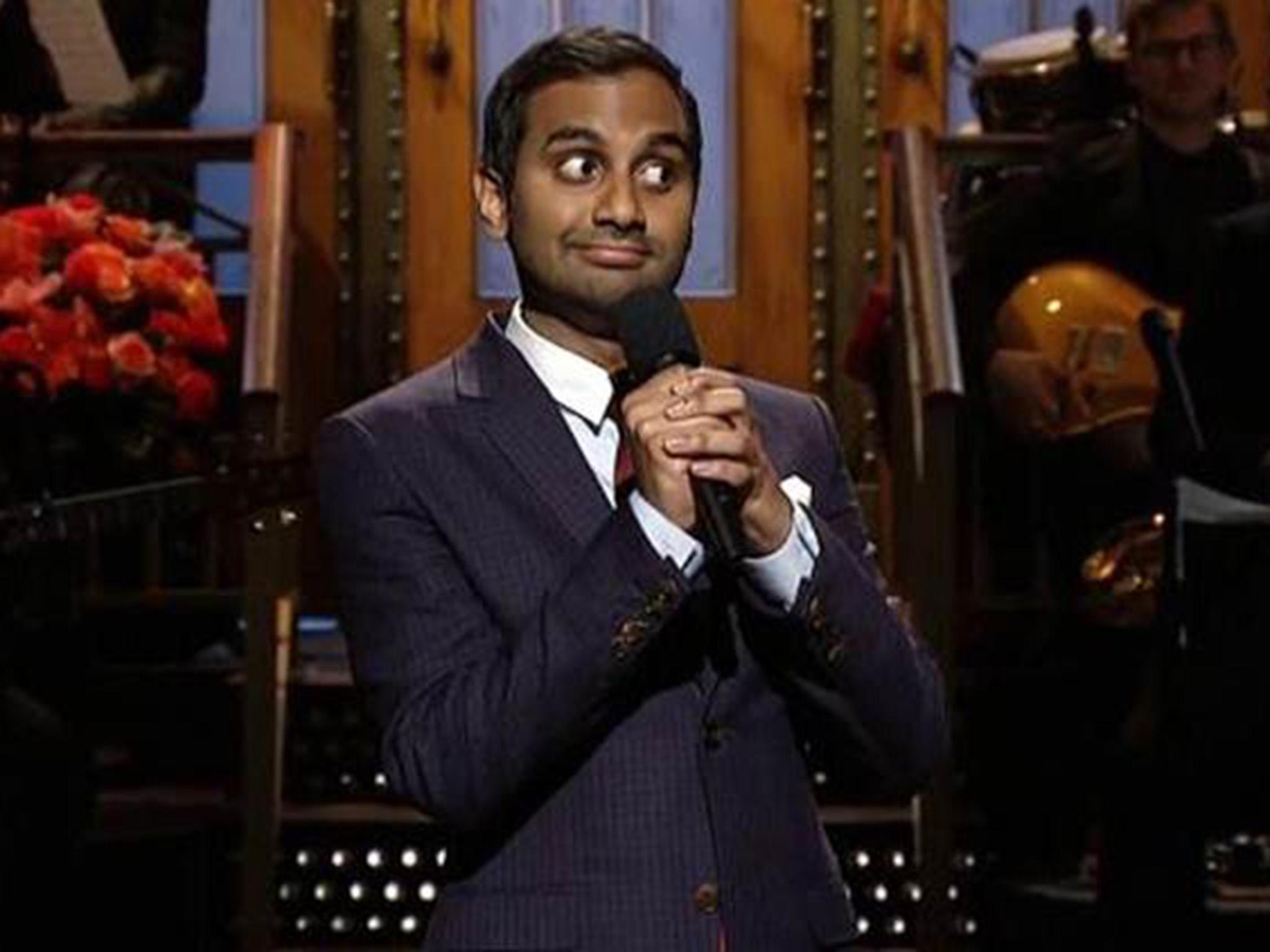Aziz Ansari on Master of None, Parks and Recreation and Islamophobia
The success of Ansari’s show 'Master of None' on Netflix has the comedian fending off questions about what comes next

Your support helps us to tell the story
From reproductive rights to climate change to Big Tech, The Independent is on the ground when the story is developing. Whether it's investigating the financials of Elon Musk's pro-Trump PAC or producing our latest documentary, 'The A Word', which shines a light on the American women fighting for reproductive rights, we know how important it is to parse out the facts from the messaging.
At such a critical moment in US history, we need reporters on the ground. Your donation allows us to keep sending journalists to speak to both sides of the story.
The Independent is trusted by Americans across the entire political spectrum. And unlike many other quality news outlets, we choose not to lock Americans out of our reporting and analysis with paywalls. We believe quality journalism should be available to everyone, paid for by those who can afford it.
Your support makes all the difference.At the wrap party for the second season of Master of None last December, the show’s star and co-creator Aziz Ansari addressed the cast and crew. But this wasn’t the typical thank-you for hard work. Using what would politely be called a “bathroom word”, he suggested they managed to ruin season 1 by comparison. “I don’t know how we did it,” he says, “but we did it.”
Ansari was joking, to underscore how hesitant he felt about doing another run considering how good he felt about the first. Success has brought new concerns.
At 34, he is no longer the stand-up comic joking about his young pudgy cousin Harris (who plays his grown-up and quite buff cousin in the second season). Nor is he the lovably vain city employee and failed entrepreneur from the NBC sitcom Parks and Recreation. Through the Netflix show; his best-selling book, Modern Romance; and his powerful monologue on Saturday Night Live after the presidential inauguration, Ansari has accomplished what Chris Rock once wrote that 1970s-era Woody Allen had done: recast the idea of what a leading man should be.
And, as Allen did with Annie Hall and Manhattan, Ansari has also raised expectations of the work he puts out into the world.

“When you think of the star of a movie or TV show, you don’t think of someone that looks like me or someone that looks like Woody Allen or someone that looks like Seth Rogen,” Ansari says one afternoon in May at the Bowery Hotel. “But look, the point of the Woody Allen movies and the point of Master of None is that it’s all driven by point of view. As long as someone’s point of view is interesting and they have something to say, it doesn’t matter what they look like.”
Like Allen, Ansari has made a persona of the restless, somewhat neurotic bachelor; unlike Allen, he has faced the problem of love with head-on sincerity and even scholarship. Written with Eric Klinenberg, a sociology professor at New York University, Modern Romance deals with traditional relationships: how technology has changed them and what we ultimately expect in our search for someone. In their research, he and Klinenberg conducted online forums, focus groups across the world and surveys of audiences during Ansari’s stand-up routines. And then they ate. But only the best Yelp had to offer.
“The truth is that any trip with Aziz, even one that is organised around research and requires thousands of miles of flight, quickly becomes about the food,” Klinenberg says. “I think the only really low point in travelling with him is I really didn’t want to wait that many hours in line for ramen.”
Why didn’t Ansari simply write a brand-extending book like Tina Fey’s Bossypants or Mindy Kaling’s Is Everyone Hanging Out Without Me? (And Other Concerns)?

“If I did a book like Bossypants or Mindy’s book, to me it would be material that I would use for stand-up,” he says. “I just thought that would be something interesting and unexpected and different.”

Watch Apple TV+ free for 7 days
New subscribers only. £8.99/mo. after free trial. Plan auto-renews until cancelled

Watch Apple TV+ free for 7 days
New subscribers only. £8.99/mo. after free trial. Plan auto-renews until cancelled
Master of None, created with Alan Yang, a writer on Parks and Recreation – and done without the time-slot constraints of network or even cable television – has given Ansari the chance to move the goalposts rather than be hemmed in by them.
“No matter what creative field you are in,” he says, “a writer or comedian or whatever, people have no imagination for what your talent is beyond what they see from you. And if I just did just Indian jokes in the beginning of my career or where I played an Indian dude in the call centre or whatever, that is what people would see me as. And that is all they would want me to do.
“But even pushing that aside,” he continued, “when I did Parks and Rec, people were like: ‘Well, that is what this guy does? Let’s just have him do that.’ And then I had to make Master of None to be like, ‘No, I can do this, this and this.'”
Despite his fears, the recently released second season, was pored over by a binge-watching nation. In New York, people were overheard talking about the show in subways and bars, and at dinner parties. They spoke about the “Religion” episode, which featured Ansari’s parents, who also starred in the first season. They talked about the first episode, filmed in black and white, and conducted almost exclusively in Italian.
And everyone had an opinion on the fantastical romance between Ansari’s character, Dev, and the dreamy, engaged Francesca. Regardless of one’s opinion of what went on, Dev’s heartache and longing were palpable. He was able to communicate, even in his silent moments, that desperate wish to be happy with her, even if that happiness exists in a fantasy – something most of us have tried at one point in our lives.
“He doesn’t know what he wants that first year,” Yang says of the evolution of Ansari’s character. “This year, he knows what he wants but can’t have it. We watched a lot of these Italian neorealist movies, and there is a lot of extreme passion and emotion and sort of lyricism, and some of that might have seeped through.”
Ansari’s own passions extend well beyond his personal life. He was booked to host Saturday Night Live the day after the presidential inauguration: a Muslim-born American from South Carolina on centre stage just one day after a man who had called for a ban on Muslims entering the country had officially become the leader of the free world. There are very few moments when so much is expected of a comedic performance.
Ansari tried out the material on 111 different occasions, including sets on Christmas Day at the Comedy Cellar in New York, just after having dinner in the West Village with David Cho, a media consultant and the former publisher of the defunct sports and pop culture website Grantland.
“I didn’t work on Christmas,” Cho says. “But that’s the seriousness which he takes with everything and the work that goes into it, which I don’t think can be overstated enough.”
The preparation paid off. The set expressed a real hope for the future of the country and a belief in the goodness of its people. It was also very funny. But just as Jimmy Kimmel did after speaking about his newborn son’s heart condition on Jimmy Kimmel Live, Ansari has become a fervent figurehead of the so-called “resistance”.
“It was all coming from a real place,” Ansari says. “If I’m talking about Islamophobia or something, I’m talking about my parents. It’s coming from a real place. I would rather have that burden than feel like I didn’t have anything to say.”
And yet he still has the searching quality of one not quite young but not yet dashed on the shoals of middle age.
“He’s just trying to figure stuff out,” says David Chang, the founder of the Momofuku restaurant group and a friend of Ansari’s. “I think that is what makes him so compelling to everyone.”
Ansari has told him he would be a terrible father. “I disagree wholeheartedly,” Chang says. “He is such a good son.”

Ansari’s younger brother, Aniz, is a writer on the show. They have “a great relationship and they completely admire what their parents have done, and that’s a genuine thing,” Chang says.
Ansari says: “I feel like I’ll figure all that stuff out when I have a partner that I am ready to figure that out with. It’s not something that I am thinking about at the moment. I just feel like it’s a conversation that I will have further down the road when I’m in a different place.”
Just where that place will be is now entirely up to him.
“He has done a decent amount of hiding, which is a not-unhealthy reaction,” says James Murphy, the frontman for LCD Soundsystem and a friend. “I think there are three options: Either embrace celebrity and just hang out with famous people. Hide. Or create a middle path – which is a lot more work, a lot harder.”
Work is not something Ansari avoids – but work on what? He wants to write and direct. Whether that is writing and directing a third season of Master of None is another issue entirely.
“You’re not able to breathe before you have people say, ‘What are you doing now?'” Ansari says. “But I just put the season out! I have some things in my own life I need to sort out! I’m in the middle of trying to figure out Season 34 of Aziz Ansari.”
'Master of None' is on Netflix
© New York Times
Join our commenting forum
Join thought-provoking conversations, follow other Independent readers and see their replies
Comments